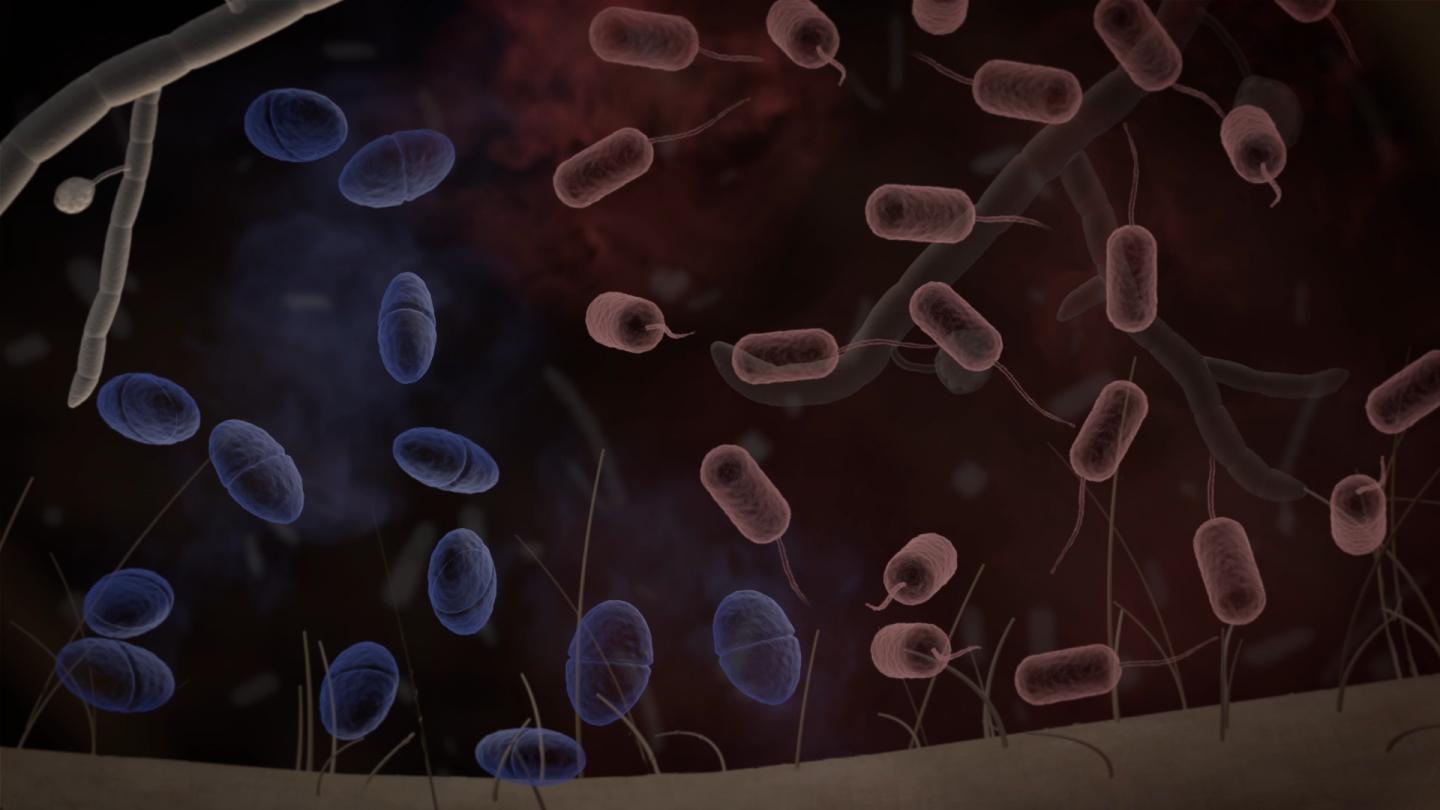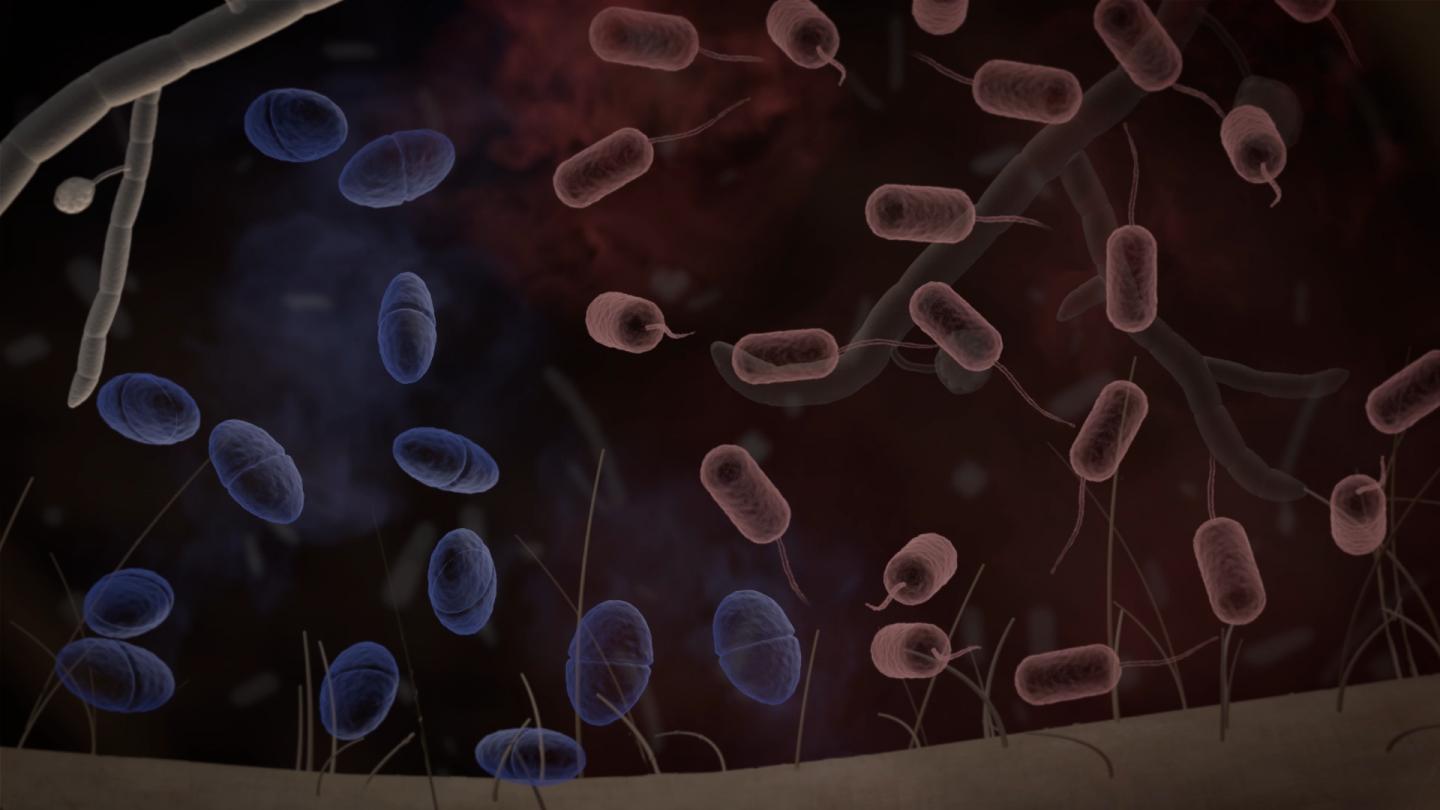
Credit: iTZiT Visual Techonology/NIOO-KNAW
Tiny predators in the soil can literally sniff out their prey: soil bacteria, which communicate with each other using scent. A team of researchers from the Netherlands Institute of Ecology (NIOO-KNAW) has discovered that these predators – called protists – 'eavesdrop' on the bacteria's communication. It's a discovery that opens up perspectives for agriculture. The results are available online this month in The ISME Journal, from the publishers of Nature.
It's dark belowground, so having a good sense of smell is vital. NIOO's soil and microbial ecologists had already found out that soil bacteria tend to use scent to communicate with each other.
Lead author of the article Kristin Schulz-Bohm: "People, too, can smell some of these scents. Just think of the way the woods smell after a summer shower. It's produced by 'talking' bacteria. But it now turns out that the bacteria's natural enemies also take advantage of these scents."
'Long' distance
Protists are key predators of bacteria in the soil. Until now, it was unknown how protists sense their prey in such a complex and labyrinthine environment. Protists may be larger than bacteria, but they are still single-celled.
Scent, it now turns out, is especially important for long-distance communication – and of course if you're a micro-organism, most communication tends to be long distance. The volatile organic compounds (VOCs) responsible for these smells can 'carry' across distances of about ten centimetres.
Another thing the protists use smell for is to distinguish between different types of bacteria. It helps them choose the best or most attractive prey and go straight for that, believes soil ecologist and protist-expert Stefan Geisen, one of the members of the research team.
Christmas trees
Terpenes are a key component of that 'aroma': the researchers found out that bacteria which could no longer produce terpenes, left the protists unaffected. Terpenes? "It's not a word many people would know", says Kristin Schulz-Bohm, "yet everyone knows what they are. Terpenes are what makes christmas trees smell like christmas trees. Or think of mandarins, or lavender."
Possible practical applications for the team's discovery are already coming into view. "It may be possible to use these volatile organic compounds for biological pest control. To attract natural enemies of pathogens and other harmful micro-organisms." Terpenes: they're not just for Christmas…
###
The NIOO counts more than 300 staff members and students and is one of the largest research institutes of the Royal Netherlands Academy of Arts and Sciences (KNAW). The institute specialises in water and land ecology. Since 2011, the institute is located in an innovative and sustainable research building located in Wageningen, the Netherlands. The institute has an impressive research history stretching back 60 years and which spans the entire country and beyond its borders.
Media Contact
Froukje Rienks
[email protected]
31-610-487-481
@niooknaw
http://www.nioo.knaw.nl
############
Story Source: Materials provided by Scienmag





